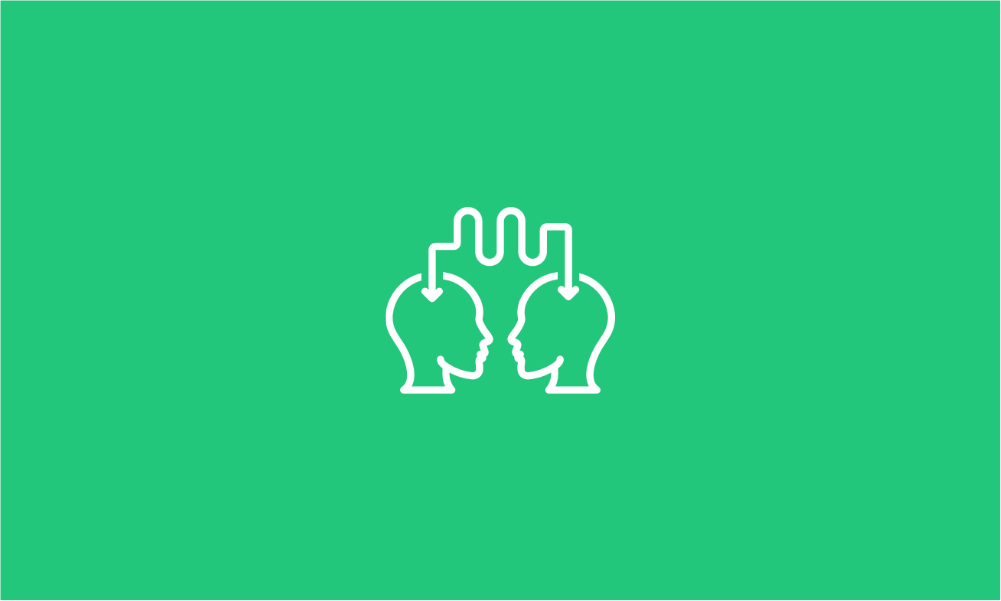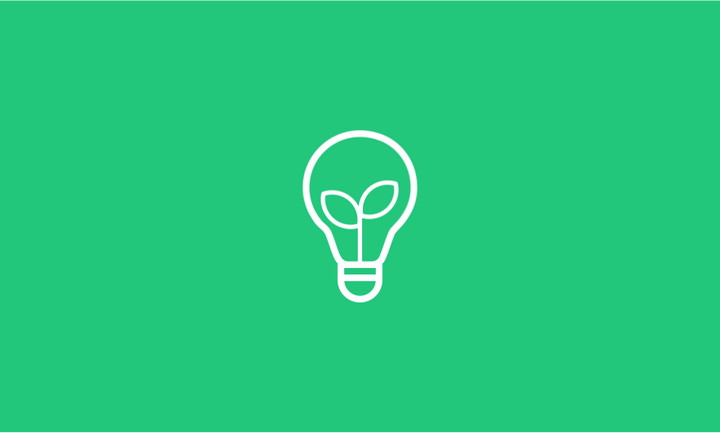Why I'm Building Tools for Humanity
Learn why I'm making Tools for Humanity to support other people's wellness (and hopefully my own too).

Living A Good Life
I love powerful questions. Questions are often the start of fulfilling journeys of curiosity, discovery, and learning. They can create the possibility of something different and something better. Questions can invite connection with other people and help us learn from their wisdom. And asking and answering questions can help each of us live better lives, both individually and collectively.
Over the past few years, a big question for me has been “What do I want to do with my life?”. The scarcest resource for humans is time, and thus my question is about having clarity and intention for how I want to spend my time and energy. I believe for most people, a primary goal is to live a life full of happiness and to help other people to do the same. I also believe the definition of happiness is different for each person and therefore up to each person to define for themselves. Looking at the experience and wisdom of other people throughout history, there are common patterns for happiness which often include meaningful work, meaningful connection, service to others, and growth. But still, each of those things still requires a person to find what works for them and make decisions that support their happiness.
One of the things that differentiate humans from other species is our ability to think for ourselves and make decisions about what to do and not do. In other words, people largely get to decide who they want to be and how they want to live their lives. Sure, there are constraints related to biology, society, privilege, etc. But for the most part, it’s up to each of us to decide. As Annie Dillard said, "How we spend our days is, of course, how we spend our lives." It is the decisions you may on a daily basis that add up to your life and that contribute to your happiness.

Having A Point Of View
Every day, you make thousands of decisions that either support or hinder your happiness. Each of these decisions moves you closer or further away from happiness. And to make decisions, you need to have a point of view. You need to be able to efficiently and effectively make decisions - bets - about what to say yes and what to say no to. I call this point of view a personal philosophy.
A personal philosophy can include many things. It might include your values, your experience, your tools, and your habits, etc. Philosophy is defined as “a system of principles for guidance in practical affairs” and thus a personal philosophy is just another way of saying “your principles for living a happy life”. A personal philosophy isn’t a destination, it’s a lifelong journey that changes over time. Having a personal philosophy can contribute to living a more intentional self-directed life, which in turn can lead to living a life that you are happy to be living, both while living it and when looking back on your life. Having a personal philosophy can also help you be more resilient and adaptive to life’s changes and challenges - at home, at work, in relationships, and anywhere in between. However, making decisions that aren’t aligned with your philosophy cause dissonance.
Dissonance is a lack of harmony and tension that results from a mismatch between your philosophy and reality. While dissonance is part of learning and growing, a lot of dissonance over a long time isn’t enjoyable or sustainable. Humans don’t like dissonance, generally trying to achieve equilibrium. When trying to reduce dissonance, many people choose quick and easy solutions. For example, if you’re experiencing dissonance at work where you’re values are being violated, you may just “check out” avoiding the problem instead of trying to resolve the root cause by having a difficult conversation with a co-worker or finding a new job that’s a better match for your values. Avoid the problem will likely provide some relief at the moment but will cause recurring dissonance in the future. Often the big changes we want to make in our lives require a bit of dissonance. But knowing whether dissonance is good or bad can be challenging, especially since we’re often trying to use someone else’s external philosophy which can lead to more dissonance. Having a personal philosophy can be like a north star, guiding your journey and providing structure, energy, and motivation to help you to keep moving towards it through challenge and dissonance.
The science of mastery shows that those who achieve mastery in a particular domain (ex. chess, business, happiness) have strong mental models which help them to make quick and effective decisions. A mental model is “a simplified, cognitive representation of reality that is used to describe, explain, and predict events”. In other words, it’s a model we use to predict how making a decision will result in a particular outcome. A personal philosophy is a collection of mental models you can use to effectively navigate the decisions in your life. And the science of mastery has shown up that developing mental models takes practice to develop and strengthen mental models. And to do that, humans have often created and used tools to support their growth and mastery.

Tools For Living
Over the history of humanity, humans have developed tools for creating strong mental models and for being able to make better decisions with them. Many people have a vague philosophy and thus a vague set of mental models which leads to inconsistent or ineffective decisions. Many of the tools humans have created such as language, writing, computers, and the Internet enable assisted cognition, extending the natural power of our brains and our ability to reason, identify options, make decisions, learn from our actions, and decide how to respond.
Neuroplasticity is the quality of the human brain that allows our brains to create and adapt to using new tools. Because of Neuroplasticity, humans can grow, change, and adapt over a lifetime rather than waiting for evolution. Many of the tools humans have created extend our minds, enabling us to think in new ways. For example, humans have created practices for mindfulness such as meditation which has enabled humans to step back from themselves and notice our thoughts, feelings, environment, etc so that we can learn from them and decide how to react to them. Humans have also created practices for metacognition - thinking about thinking - such as journaling which has enabled humans to reason, identify options, make decisions, learn from our actions, and decide how to respond.
But too often in our modern times, we’ve used our collective wisdom about humans against them, building tools to exploit humans instead of supporting their humanity. Tools that use psychology again people to hijack their attention, prey upon their fears, and create habits that are really addictions meant to capture personal data, sell ads, and make money. While investors hold companies accountable for profit, who’s holding companies accountable for humanity? What if we used our collective wisdom about humans to create tools to help humans? What if we used technology for good and said no to technology that doesn’t support us?
In my own journey to clarify my personal philosophy and live a life of happiness, I’ve realized how tools have aided and accelerated my progress. Meditation has helped me to be more present and step back from my thoughts, feelings, and environment to observe them. Journaling has helped me to notice and explore what’s going on in my inner life, make sense of things, identify options, make decisions, and take actions that are more aligned with my values and happiness. Many of these tools have been aided by technology. I’ve used the Headspace and Walking Up apps to learn about meditation, develop daily habits, and deepen my practice. And I’ve used Day One and now Onward.ly for journaling.
I created Onward.ly after struggling to develop and deepen my journaling practice of reflective journaling. Apps and the connection of the Internet are great mediums for creating tools that facilitate and structure clarity and growth by providing guardrails to support learning, connection, reflection, meaning-making, accountability, and feedback. There are a lot of good ideas and wisdom in the world, but they often lack the structure to make them easy to try and turn into habits. I believe technology can help solve that problem.
Onward.ly is an example of a tool for humanity that helps me reflect on my thinking, feelings, actions, and life and has shown me the power of a tool to support and deepen my practice. It helps me to notice and remember more moments in my life, reflect on those moments through powerful questions, identify options for what’s next, and make decisions so I can take action and continue living a life of happiness, growth, and connection. Onward.ly is a lab for me to explore my own wellness and explore how I can share those tools with other people.

Tools For Humanity
So what have I learned about my own personal philosophy? What is it? I want to explore how technology can be used to support people in having more happiness in their lives and support those people in helping others to have more happiness in their lives as well. To achieve this mission, my point of view - my bet - is creating tools for humanity that help people to have a clearer personal philosophy and skills for living an authentic life full of happiness.
I’ve created Tools For Humanity to address these challenges and opportunities. I plan to explore them in a few different ways:
- By creating tools for humanity and putting them out into the world to learn in public by actual people using the tools and hopefully positive impact on people.
- By writing, speaking, and public discussion about humanity, wellness, happiness, philosophy, and tools for humanity.
By promoting the knowledge and wisdom of others by partnering with them and their ideas to create tools for humanity.
By doing these things, my goal is to create an increased cultural expectation that the humanity of every person matters and that it’s our individual and collective responsibility to work towards increasing humanity in our societies, systems, organizations, and world.
Over time, I hope to create a collective of other people who also want to share in this vision and who want to partner and collaborate in this work.
As I moved forward, I’m asking a few powerful questions to help frame this work:
- How can we teach and strengthen mindfulness and metacognition skills to have clarity about who we are and who we want to be, think for ourselves, and live more authentic lives?
- How can we improve the signal-to-noise of finding unique well-articulated thinking, tools, and options in a sea of mass marketing and content-as-acquisition?
- How can we better express and communicate our needs and understand the needs of others to more effectively make meaningful connections and support each other?
- How can we make philosophy cool again so that we have more resources, motivation, and permission to clarify who we are and who we want to be and support others in doing the same?
- How can we use technology to create tools for humanity to unlock new options for thinking, connection, and happiness, both individually and collectively?
- How can we unlock more time and energy for people to spend on their wellness and happiness?
- How can we share our diversity and wisdom while not becoming dogmatic?
- How can we free ourselves from the ghosts of the past and outdated thinking while keeping what’s working and helpful?
Does this sound interesting to you? If so, I invite you to join my newsletter Tools For Humanity. Learn more about Tools For Humanity at toolsforhumanity.io.



Comments ()